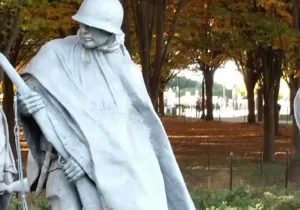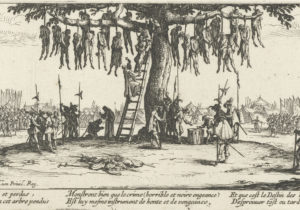Stephen Wolfe’s The Case for Christian Nationalism (Canon Press, 2022) caught the cultural moment. Released at the height of media furor over (white) Christian Nationalism, Wolfe’s book is an ambitious attempt to provide a substantively positive account of this particular brand of Christian political theory. Though his arguments are complex and wide-ranging, they frequently fail to hold up under scrutiny; while Wolfe frequently spends pages on more or less obvious points, he simply asserts more controversial underlying premises, which, if false, pull the rug out from under him.
This is an intensely personal book for Wolfe, animated primarily by love of his family (478). Wolfe’s project is to go beyond merely “justifying the institutionalization of Christianity” (5). Rather, he seeks to galvanize the will of his readers: “The problem,” he says, “is not simply the absence of arguments but the lack of will for our political objectives” (5). Towards these ends, Wolfe’s strategy is a ressourcement of Reformed scholasticism. He admires and seeks to mimic the Reformed Scholastics’ commitment to “rational demonstration” and “the systemic nature of truth” (19). He “assumes” (16) the Reformed tradition and rigorously builds his argument from a few givens from that theology.
Wolfe begins his case by arguing that, had Adam and Eve not fallen, mankind would have spread out over the earth and formed communities that would necessitate civil government. He gives two reasons for this. First, mankind is gregarious or social (58) – he naturally lives with others. For this reason, communities of households would necessarily form. Second, mankind is limited in how much he can know (63). This means different communities will develop their own cultures since none could develop a universally functioning form of civilization. Cultural diversity would arise naturally (65). So far, so obvious.
The unstated premise comes when Wolfe begins describing why a civil government would be necessary under these conditions. Within the community, naturally, there would be differences of vocation, and, as a result, competing interests or “penultimate ends” (70). The government’s role is to reconcile these “diverse interests” (72) and maintain peace. If this is not done, “vocational diversity and complexity produce potentially clashing interests, which (absent some organizing agent) would destroy liberty and the health of the community itself” (70). The implied and undefended premise here is that diversity or difference automatically introduces the potential for conflict.
Wolfe’s argument here relies on his reader’s intuitive assent to this implied premise. Agreement or disagreement with these kinds of implied premises goes some of the way to explaining the extreme reactions to this book. Intuitively disagree with the premise, and the rest of the argument may seem to imply that diversity is always bad, and from there it is a short step to (lazy) accusations of racism. Intuitively agree, and the arguments become inspiring; they draw up something deeply felt into a grander vision.
Perhaps it is true that diversity and difference in penultimate ends are a cause for conflict. Certainly in the postlapsarian world, sin makes it easy to demonize and create friction over even slight differences. But this is not the whole story: similarity is just as much a potential cause for conflict. The civil government’s role, Wolfe says, is both keeping peace among differing vocations and maintaining cultural particularity (66, 71, 80). This cultural particularity is made up of “particular similarities” of both people and place (134) shared by members of the community, which make up their way of life. Wolfe’s whole argument is that the nation has a right to self-consciously act in the interest of guarding (by excluding foreign customs) and maintaining (through civil and social action) the particular similarities of its people.
The example Wolfe gives of vocational difference causing problems helps to highlight that these particular similarities can cause conflict as well. He offers the hypothetical conflict over land use or materials as an example of differing penultimate ends (71). But the potential conflict only arises when the differing ends concern a particular similarity. There is no conflict over land usage between communities thousands of miles apart, who share no particular land. Their differing penultimate ends do not have the potential for conflict. It is only when there is particular similarity that the potential for conflict in these examples arises.
The implied premise here, which does not tell the whole story, undermines much of the force of Wolfe’s overall argument. If particular similarity and difference are both causes of conflict then a civil government’s role cannot be to maintain particular similarity at the expense of difference (or, agreeing with Wolfe, vice versa). Difference, he admits, is necessary, just like particular similarity (60). The analogy is between households and communities: A husband and wife must be different, but share particular similarities. The same is true of communities: balance between necessary difference and similarity must be maintained and nations must be balanced as well.
But Wolfe stops here, citing the fact that man cannot be “close in heart” (65) with everyone in the world. Perhaps this was true in ages past, but are there not nations today whose leaders and people are both close in heart? All of the above-mentioned groups operate interdependently between parts and whole while “depend[ing] on the whole for existence” (61). If this is the case, why should it be that nations are the maximum ‘whole?’ Without denying the right of nations to act in their own self-interest, by Wolfe’s own logic, they also depend on one another as parts of the whole earth. In the global 21st century, as nations grow more interdependent, there is a need for both difference and particular similarity on the international level as well, calling into question the entire arc of nationalism, Christian or otherwise.
This leads to another of the underlying and often unstated difficulties of the book: the lack of history. Wolfe says that his “world is that of the early modern period (the 16th through the 18th centuries” (19). This is all well and good, but more often than not, Wolfe argues as though we were still living then, or as though the 19th and 20th centuries had not happened. The lacuna rears its head frequently. Wolfe assumes the Reformed theological tradition, but almost exclusively from the 16th and 17th centuries (16-17), as if there had been no developments in the tradition since then. He occasionally hints that he is aware that later Reformed theologians do not take the same positions as himself (44, 425n53), but ignores entirely such significant Reformed theologians as Schleiermacher, Barth, and Torrance.
The same occurs in his discussion of the American founding. He argues that the founders legitimately developed Protestant theological principles in shaping the nation (431). This tradition, therefore, must be “reclaimed and serve as an animating element of American Christian nationalism” (431). The tradition must be reclaimed, because somehow it was lost. Wolfe does not say how it was lost, he simply leaves the large gap of history between then and now unattended. He insists that his is not a nostalgia project, not an attempt to return to the 1780s (431), but it certainly seems like an attempt to bring the 1780s to today.
This weakness hampers his more theoretical chapters as well. In particular his contention that what Christian nationalism needs is a “Christian Prince” to mediate the national will for itself (278). The term “Prince” denotes “both an executive power . . . and personal eminence in relation to the people” (279). He admits that the American government today (and it is hardly alone in this) no longer has the kinds of executives spoken of by the Protestant political theorists he is drawing upon. Further, there is also today an “institutionalized separation of powers” (278) that was a later development. Nevertheless, he outright admits that he cannot conceive of a renewal of Christian commonwealths without such a Caesar-like figure (278-9). At every turn, Wolfe’s Christian nationalist project stops history at the 18th century and, if it is not attempting to return, glosses over all historical change and development since in its desire to drag that period forward.
I give these examples to highlight the precarious and ultimately unconvincing nature of Wolfe’s argumentation in his Case for Christian Nationalism. This does not mean that every argument in the book fails or that there is nothing of value. The third chapter, “Loving Your Nation,” is particularly strong due to Wolfe’s effusive and endearing “love of his own” (478), which shines brilliantly throughout. Despite failing one goal of his project—providing arguments—Wolfe’s attempt to galvanize the will of his readers via his own passion and love is quite compelling. This is especially the case for those who intuitively believe his implied premises or are energized with hope for the future by the idealization of a bygone era. Despite the unconvincing character of the case itself, this book demands serious reading because Wolfe has made it the “theme of his life.” He argues energetically because he truly intends to live it, and this alone is enough to make this book a required read.







 Sponsor a student for Christianity & National Security 2024
Sponsor a student for Christianity & National Security 2024